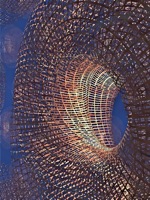Difference between revisions of "Conjecture"
From Nordan Symposia
Jump to navigationJump to search (Created page with 'File:lighterstill.jpgright|frame ==Etymology== [http://nordan.daynal.org/wiki/index.php?title=English#ca._1100-1500_.09THE_MIDDLE_ENGLISH_PERIOD Middle...') |
m (Text replacement - "http://" to "https://") |
||
| (One intermediate revision by the same user not shown) | |||
| Line 2: | Line 2: | ||
==Etymology== | ==Etymology== | ||
| − | [ | + | [https://nordan.daynal.org/wiki/index.php?title=English#ca._1100-1500_.09THE_MIDDLE_ENGLISH_PERIOD Middle English], from Middle French or [[Latin]]; Middle French, from Latin conjectura, from conjectus, past participle of conicere, [[literally]], to throw [[together]], from com- + jacere to throw |
| − | *Date: [ | + | *Date: [https://www.wikipedia.org/wiki/14th_Century 14th century] |
==Definitions== | ==Definitions== | ||
*1 obsolete a : [[interpretation]] of [[omen]]s | *1 obsolete a : [[interpretation]] of [[omen]]s | ||
| Line 11: | Line 11: | ||
:c : a proposition (as in [[mathematics]]) before it has been proved or disproved | :c : a proposition (as in [[mathematics]]) before it has been proved or disproved | ||
==Description== | ==Description== | ||
| − | A '''conjecture''' is a proposition that is unproven but [[appears]] correct and has not been disproven. [ | + | A '''conjecture''' is a proposition that is unproven but [[appears]] correct and has not been disproven. [https://en.wikipedia.org/wiki/Karl_Popper Karl Popper] pioneered the use of the term "conjecture" in [[philosophy]]. Conjecture is [[contrasted]] by [[hypothesis]] (hence [[theory]], [[axiom]], principle), which is a testable [[statement]] based on accepted grounds. In [[mathematics]], a conjecture is an unproven [https://en.wikipedia.org/wiki/Proposition proposition] or [https://en.wikipedia.org/wiki/Theorem theorem] that appears correct.[https://en.wikipedia.org/wiki/Conjecture] |
[[Category: General Reference]] | [[Category: General Reference]] | ||
Latest revision as of 23:43, 12 December 2020
Etymology
Middle English, from Middle French or Latin; Middle French, from Latin conjectura, from conjectus, past participle of conicere, literally, to throw together, from com- + jacere to throw
- Date: 14th century
Definitions
- 1 obsolete a : interpretation of omens
- b : supposition
- b : a conclusion deduced by surmise or guesswork
- c : a proposition (as in mathematics) before it has been proved or disproved
Description
A conjecture is a proposition that is unproven but appears correct and has not been disproven. Karl Popper pioneered the use of the term "conjecture" in philosophy. Conjecture is contrasted by hypothesis (hence theory, axiom, principle), which is a testable statement based on accepted grounds. In mathematics, a conjecture is an unproven proposition or theorem that appears correct.[1]
